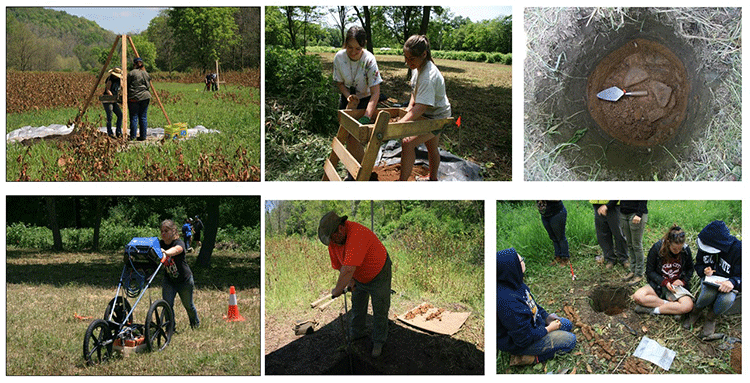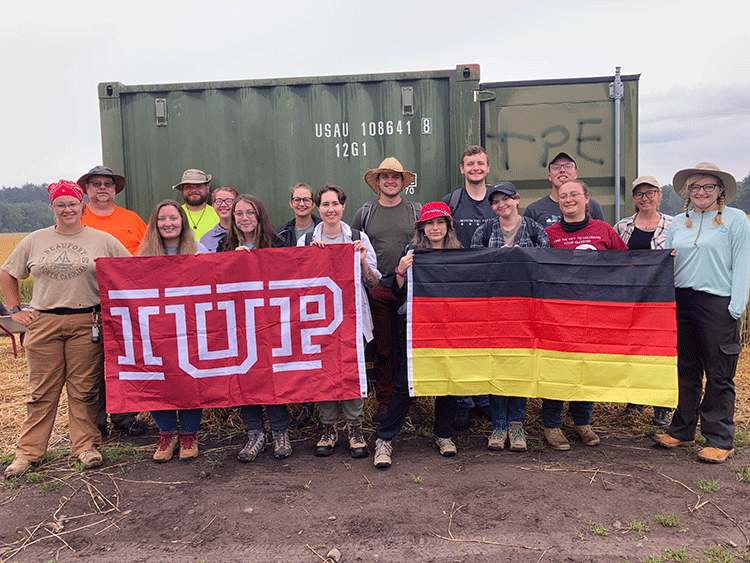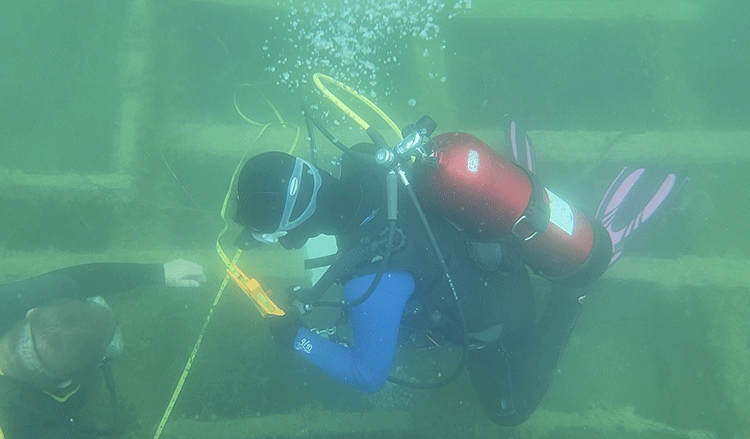IUP Anthropology believes that experiential learning is the cornerstone of student success. Anthropology is something that you have to do in order to really understand. An important part of that experience building is summer field schools. This summer, Anthropology is offering four field schools. All of these programs are open to both IUP and non-IUP students.
Archaeological Field School (ANTH 320/520) (May 20–June 28, 2024) teaches basic archaeological skills, including survey, excavation, record keeping, photography, artifact identification, shovel test pits, and ground penetrating radar. Students are engaged in a real excavation at a circa AD 1400 Indigenous village site owned by the Archaeological Conservancy. Contact Lara Homsey-Messer (lmesser@iup.edu) for more information.

Advanced Archaeological Field Methods (ANTH 740) (May 20–June 28, 2024) is taught in parallel with ANTH 320/520 and offers students with a previous field school the opportunity to build their supervisory and archaeological skills. Students in this class develop a research plan and then execute it with the help of other students. The class ends with participants preparing a report of their findings and interpretations. Contact Lara Homsey-Messer (lmesser@iup.edu) for more information.
Forensic Archaeology Field School (ANTH 321/521) (July 1–August 11, 2024) teaches forensic recovery techniques at the site of a WWII plane crash in Germany. Offered through a partnership with the Defense POW/MIA Accounting Agency, this field school serves a valuable mission for the US Government while providing students with both a study abroad experience and valuable field skills. Contact Andrea Palmiotto (apalmiot@iup.edu) for more information and an application.

Lake Erie Underwater CRM (offered through the Center for Field Sciences) (July 14–August 10, 2024) is designed to teach underwater cultural resource management techniques. IUP representatives are offering this field school in partnership with representatives of the Seneca Nation and Texas A&M University. Students will learn marine remote sensing, ethnographic techniques, and underwater recording, as well as be introduced to the laws that govern submerged cultural resources. Contact Ben Ford (ben.ford@iup.edu) for more information.
